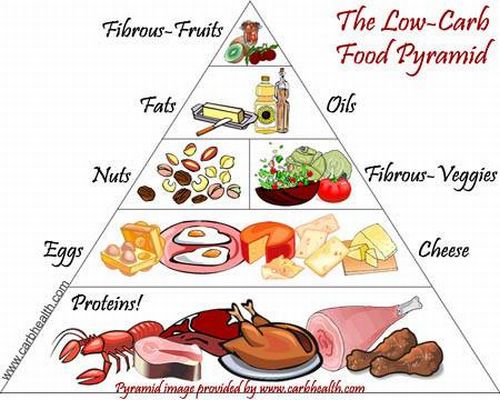
Dropping carbohydrates is a good way to lose weight
Many people who try protein-heavy, carbohydrate-limiting diet myths report dramatic weight loss, but at what expense? By focusing your diet on high-protein foods like meat, cheese, eggs, and pork rinds (all foods that are high in cholesterol) you could be risking a heart attack, and buying right into this diet myth. By cutting out carbohydrates, which the body craves for a reason, you can become irritable, nauseous and weak. Lack of fruits and vegetables, a key source of dietary fiber, can lead to constipation. And eating too few carbohydrates puts you at risk of developing ketosis, a condition in which fats in your blood (ketones) build up, leading to gout and kidney stones.
Low-fat food is healthy
The diet myth behind low-fat food’s popularity is simple: Less fat equals fewer calories, which equals a healthier alternative to the full-fat version, right? Not necessarily. Low-fat versions are often full of added ingredients, like sugar and flour, there to improve the flavor of the newly fat-deficient food. However, extra doses of refined carbohydrates like sugar and flour can just cause you to become hungry again much faster. Sometimes, low-fat foods even contain more calories than their full-fat cousins, in which case you’d be better off indulging in the regular version. To be sure that a low-fat version is really healthier for you, you’ll need to do some grunt work. Compare ingredients and nutritional information in both varieties. If the low-fat food beats this diet myth, then feel free to stock up.
Skipping meals is a good way to lose weight
Skipping meals is not only unhealthy, but you’ll also often ingest more when you eventually do eat because you’ve been starving yourself all day. Besides, scads of studies prove that people who eat a wholesome breakfast and small meals throughout the day weigh less than those who buy into this diet myth and skip meals and eat fewer times throughout the day. The reason? Inconsistent eating makes it hard for your body to regulate its metabolism. By going hungry, you’re making your body believe that it’s time to enter starvation mode, and it does this by conserving calories and storing any extra calories as fat. Even if you aren’t giving it any more of either, it’s going to store what it currently has and not burn the extra you want burned during the day.
Don’t eat after 7 p.m.
This has been a long-standing piece of diet myth weight-loss advice: any food you eat in the evening will automatically be stored as fat. The truth is that calories can’t tell time. Your calorie count over a 24-hour period matters more than that bucket of popcorn you had at 10:30 p.m. What might be more important to note is not to eat just before you’re about to hit the sack. Once asleep, your body functioning is much leaner than it is during the day; while sleeping, you just don’t burn the same amount of sugar/fat/calories that you would if you were awake. So, a big bowl of pasta with cheese might not be the best midnight snack.
Cholesterol is bad for me
Without good cholesterol in our blood, our bodies wouldn’t be able to create new cells or make new supplies of crucial hormones — that’s what high density lipoprotein (HDL) is responsible for. Low density lipoprotein (LDL) (aka “bad cholesterol,” this is the notorious artery-clogging cholesterol) we could do without. Most LDL cholesterol comes from saturated fats like butter, meat and pastries, while HDL (the good stuff) can be derived from unsaturated fats like nuts, seeds and vegetable oils.
I can lose weight quickly by cutting out calories
When you drastically cut calories, your body won’t lose weight in a healthy way. As with people who regularly skip meals, your body will go into starvation mode. Your metabolism will slow down as your body holds on to the fat it would need if you really were starving. Any fat you lose will take muscle with it, which causes your basal metabolic rate (the amount of calories your body needs to support its functions) to decline. That’s why healthy weight loss is a slow process and requires muscle-building exercise to go with it.
Fat is bad for me
As in the case of cholesterol, there are good kinds of fat and bad kinds of fat. Fat is a key player in the overall health of the body, and it has a diverse resume. Fat helps clot blood, cushion organs and build cell membranes. Just make sure your diet is rich in unsaturated fats like olive oil, flaxseed oil, trout, salmon, and avocado.
If I exercise I can eat what I want
Thirty minutes of bike riding doesn’t give you a guilt-free pass to the buffet. While exercise does burn calories, you’re still susceptible to weight gain if you’re eating large portions of unhealthy food. A half-hour on the treadmill doesn’t come close to balancing the calories contained in the average super bacon cheeseburger meal with onion rings and a strawberry milkshake. That doesn’t mean you can’t indulge every once in a while — just don’t make it a pound-packing habit, and don’t expect your normal exercise routine to pick up all your slack.

You just answered a lot of questions I had, I appreciate it! 🙂